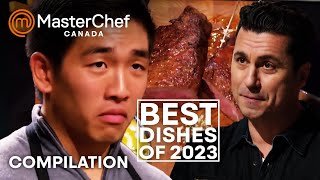🔪 What Is MasterChef Really About?
At first glance, MasterChef is a cooking competition where home cooks (and sometimes professionals) battle it out in a series of culinary challenges to win a grand prize, fame, and a title. But beneath that surface, the show is a crucible of personal transformation, a theatre of creativity under pressure, and a social microcosm where culture, class, skill, and ambition collide.
More than food, MasterChef is about:
- Dreams vs. discipline
- Passion vs. perfection
- Art vs. judgment
- Survival vs. self-expression
🔥 Core Structure of the Show
Each season is built like a hero’s journey:
- Auditions: Where people bring their dreams to the judges’ table. The tone is emotional, full of hope, anxiety, and the hunger to change lives.
- Boot Camp Rounds: Early eliminations test basic skills. Many break under pressure. Others begin to bloom.
- Individual & Team Challenges: Contestants must adapt to real-world culinary situations—restaurant kitchens, food trucks, and high-stakes catering gigs.
- Mystery Boxes & Pressure Tests: These episodes are about adaptability, intuition, and raw creativity.
- Finals: The remaining chefs must present a full-course meal that represents who they are as people, not just cooks.
What’s being judged isn’t just food—it’s growth, story, resilience, and voice.
🍽️ The Judges: Architects of Transformation
Each season of MasterChef features a panel of celebrity chefs or food industry veterans. They are not just critics—they are mentors, antagonists, gatekeepers, and sometimes, father/mother figures.
- They challenge contestants to find their identity through flavor.
- They push them to the edge of failure—not to break them, but to force rebirth.
- Their words cut deep, but so does their guidance.
Their feedback often becomes the turning point for contestants—not just in the kitchen, but in how they see themselves.
🧠 Psychology of Competition
Under the surface of plating and pan-searing lies a profound psychological game:
1. Time Pressure as Identity Test
In most tasks, contestants are given tight time limits. This forces instinctive decision-making—what they choose to cook under duress often reflects who they are.
Are you someone who returns to your cultural roots, or do you chase risk?
2. Perfectionism vs. Passion
The show constantly tests whether a dish is too safe or too bold. It asks:
- Do you trust your gut?
- Do you aim to impress or to express?
These dilemmas reflect deeper tensions within all artists and creators.
3. Group Dynamics
In team challenges, leadership, ego, communication, and emotional control all come into play. A brilliant cook may fall apart under team pressure, while a modest cook may rise as a strategist.
This is less about food and more about character under heat.
🌍 Cultural Diversity on the Plate
One of the most beautiful aspects of MasterChef is how it becomes a canvas of global culture:
- Contestants bring flavors from their heritage—South Indian spices, Mexican mole, Nigerian jollof, Japanese precision, French technique.
- The plate becomes a passport, a personal diary, a legacy in edible form.
- Immigrant stories and multicultural fusions bring depth that makes the food resonate far beyond taste.
It’s not just about “What does it taste like?”—it’s about “What does it mean?”
🎭 Drama Without Script
Unlike many reality shows, MasterChef thrives on natural drama:
- It comes from human fragility: a trembling hand during plating, a forgotten ingredient, an overcooked protein.
- It comes from pride, rivalry, tears, breakdowns, breakthroughs.
- It comes from deeply personal moments—like when someone dedicates a dish to a late parent, or to a version of themselves they once abandoned.
This makes the show empathic, not exploitative. The emotions are not forced; they are earned.
🌟 Contestants: From Unknowns to Icons
Many contestants are not chefs. They’re:
- Schoolteachers
- Truck drivers
- Stay-at-home parents
- Immigrants and underdogs
But over the season, we see them transform into artists.
Through the show, contestants discover:
- Confidence they didn’t know they had
- A voice they were afraid to use
- A future they thought was closed to them
Even those who don’t win often go on to open restaurants, write cookbooks, or become TV personalities.
That’s the real win—not the title, but the becoming.
🎥 Cinematography & Editing: Making Food Emotional
Many people don’t realize how emotionally manipulative and beautiful the visual design of MasterChef is.
- Every sizzling, bubbling, searing sound is dialed up to immerse you in the kitchen.
- Slow-motion plating and intense music raise the stakes of a garnish placement.
- Reaction shots (sweating brows, shaking hands, flickering smiles) are timed with surgical precision.
- Flashbacks are used to inject emotion right before a judgment, showing personal stakes.
The result: You don’t just watch food—you feel it.
💬 Symbolic Takeaways
Every dish in MasterChef symbolizes something:
- Redemption
- Inheritance
- Grief
- Love
- Freedom
- Identity
The plate is both a weapon and a diary. Every burn, every bruise, every success, and failure ends up there.
🏁 Final Message
Most people think MasterChef is about food. It’s not.
It’s about facing your deepest self under fire. It’s about taking something invisible—passion, memory, emotion—and serving it with your bare hands to people who will judge it. It’s about being vulnerable, ambitious, terrified, and triumphant—all at once.
MasterChef teaches us:
- That cooking is storytelling.
- That hunger isn’t just for food—it’s for purpose.
- That even in the most competitive, brutal arenas, there’s room for art, authenticity, and heart.

